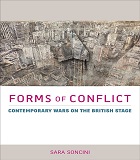
Title:
Alex rider secret weapon :seven untold adventures from the life of a teenaged spy /Anthony Horowitz.Publisher:
New York : Puffin Books , 2020
Call Number:
KIC 823.92 H816A 2020
Pages:
329 pages ; 19cm
Subject:
Language and Literature
Summary:
From internationally bestselling author Anthony Horowitz comes the fourteenth thrilling installment of the Alex Rider series! Follow the world’s greatest teen spy as he sets off to California to battle Nightshade once again—this time, for good.
When Alex Rider thwarted the plans of the criminal organization Nightshade, he knew he’d made a new, blatantly evil enemy. But he hadn’t expected to get sucked back into the spy game so quickly—that is, until the Nightshade masterminds kidnap his best friend, forcing Alex to do their bidding if he ever wants to see his pal alive again.
As Alex dives deep into this latest mission, his friend isn’t the only one whose life is on the line. Nightshade has entered the world of virtual reality gaming, and the lines between what’s real and what’s digital are being blurred everywhere. With a ruthless enemy fighting dirty and not caring who gets hurt along the way, the stakes have never been higher—and this time, it’s personal.

Title:
Black ghost of empire :the long death of slavery and the failure of emancipation /Kris Manjapra.Publisher:
Dublin : Penguin Books , 2023.
Call Number:
KIC 823.92 M278B 2023
Pages:
xiii , 240 pages : illustration ; 20cm.
Subject:
Language and Literature
Summary:
To fully understand why the shadow of slavery haunts us today, we must confront the flawed way that it ended. We celebrate abolition - in Haiti after the revolution, in the British Empire in 1833, in the United States during the Civil War. Yet in Black Ghost of Empire, acclaimed historian Kris Manjapra argues that during each of these supposed emancipations, Black people were dispossessed by the moves that were meant to free them. Emancipation, in other words, simply codified the existing racial caste system - rather than obliterating it.

Publisher:
Exeter : University of Exeter Press, 2015.
Call Number:
KIC 810 S698F 2015
Pages:
xvii, 273 pages : Illustrations ; 23 cm
Subject:
Language and Literature
Summary:
Forms of Conflict is a full-length study of the representation of contemporary warfare on the British stage and investigates the strategies deployed by theatre practitioners in Britain as they meet the representational challenges posed by the ‘new wars’ of the global era.
It questions how dramatists have responded aesthetically to the changing nature of conflict, focusing on plays written and performed after the September 11 terrorist attacks. Soncini examines how the works of playwrights such as Caryl Churchill, David Hare, Martin Crimp and Simon Stephens have provided an interpretative means to enlarge our understanding of the new patterns of conflict, ensuring theatre’s continued cultural and political relevance.
Forms of Conflict explores the relationship between new forms of warfare and new forms of drama, illustrating what dramatic form can reveal about the post-9/11 landscape and complementing a rapidly growing field of contemporary war studies.
The appendix contains a complete list of war-related plays staged in Britain between 1990 and 2010, with a brief description of their topic and approach.
This is a full-length study of the representation of contemporary warfare on the British stage and investigates the strategies deployed by theatre practitioners in Britain as they meet the representational challenges posed by the ‘new wars’ of the global era.

Publisher:
New York : New York Review Books, 2023.
Call Number:
KIC 823.92 T222L 2023
Pages:
xii, 226 pages : illustrations ; 20 cm
Subject:
Language and Literature
Summary:
Susan Taubes’s novella “Lament for Julia” is the story of a young woman coming of age in the twentieth century as seen through the eyes of a sexless spirit who supposes himself to be charged with her oversight.
What is this spirit? An operator from on high (though hardly holy), a narrative I, and a guiding presence that is more than a bit of a voyeur, who remains entirely unknown to Julia herself. About her, the spirit knows both a good deal and very little, since Julia’s emotional and physical and sexual being are all baffling, if also fascinating, to an entity that is pure mind.
The I and Julia are a mismatched couple, set up for failure from the start, it seems, even if they do somehow manage to deal in their different ways with childhood and Mother and Father Klopps and ugly pink outfits and dances and crushes for a while. After which come love and marriage, not necessarily in that order, at which point things really start to go wrong.

